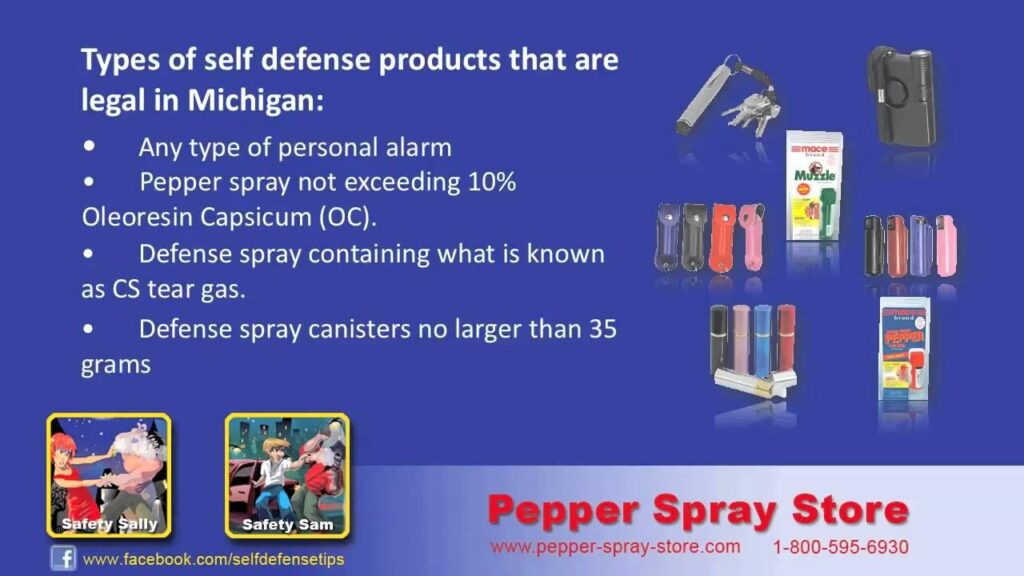Table of Contents
- Global Regulatory Landscape Shaping Pepper Spray Accessibility
- Comparative Analysis of Usage Restrictions and Legal Requirements
- Impact of Cultural and Security Factors on National Legislation
- Practical Guidance for Travelers and Self Defense Enthusiasts
- Future Outlook
Global Regulatory Landscape Shaping Pepper Spray Accessibility
Across the globe, the regulation of pepper spray varies widely, influenced heavily by each country’s legal framework, cultural attitudes towards self-defense, and concerns about public safety. In regions such as the United States, pepper spray is generally accessible to civilians, although specific state laws impose restrictions on concentration levels, permitted sizes, and age requirements for purchase. Conversely, many European countries adopt a more cautious stance, often categorizing pepper spray as a weapon and limiting its availability or outright banning it in densely populated urban centers. These discrepancies underscore the need for individuals to thoroughly research local statutes before acquiring or transporting pepper spray internationally.
Key factors shaping regulatory approaches include:
- Legal classification: Whether pepper spray is deemed a prohibited weapon or a self-defense tool.
- Usage restrictions: Conditions under which pepper spray can legally be used, including self-defense and law enforcement exemptions.
- Sales and possession laws: Age limits, licensing requirements, and where purchases are allowed.
Understanding these components is crucial for navigating the complex landscape of pepper spray legality worldwide, especially as policymakers balance individual protection rights against potential misuse risks.
Comparative Analysis of Usage Restrictions and Legal Requirements
When examining pepper spray regulations worldwide, a distinct divergence emerges in how governments balance public safety with individual rights. In countries like the United States and Canada, pepper spray is widely accessible but often subject to age restrictions and usage limits, with some states imposing strict license requirements. Conversely, many European nations, including the United Kingdom and Germany, adopt a more cautious stance, categorizing pepper spray as a prohibited weapon except when obtained through special licenses or police authorization. This variation highlights a broader tension: where some jurisdictions prioritize self-defense accessibility, others emphasize preventing misuse and escalation of violence.
Legal mandates often encompass:
- Usage context: Restrictions are placed on when and how pepper spray can be used, often limiting its deployment to self-defense against imminent threats.
- Possession and carry laws: Some regions require permits, while others forbid carrying pepper spray in public spaces altogether.
- Composition and concentration limits: Regulations may dictate the maximum allowed concentration of active agents, ensuring non-lethal efficacy.
Impact of Cultural and Security Factors on National Legislation
National legislation surrounding pepper spray is profoundly shaped by the unique cultural values and security concerns of each country. In societies where personal freedom and self-defense rights are strongly emphasized, laws tend to allow more liberal use and ownership of pepper spray, often accompanied by minimal restrictions. Conversely, countries with a high focus on public order and strict weapon control tend to impose rigorous limitations or outright bans, reflecting a cautious approach to potential misuse. The diversity in legal frameworks often mirrors historical contexts, societal trust in law enforcement, and prevailing attitudes towards personal safety measures.
Security dynamics further complicate regulatory landscapes. For example, nations facing elevated terrorism threats or internal conflicts might tighten controls to prevent pepper spray from being weaponized, alongside other defensive tools. Alternatively, in peaceful environments with low crime rates, pepper spray is commonly regarded as a practical and non-lethal self-defense accessory, resulting in streamlined regulations. Key cultural and security influences include:
- Historical precedence: Societies with traditions of civilian armament may be more accepting of pepper spray ownership.
- Public trust in authorities: High trust can lead to tighter restrictions, assuming police protection is sufficient.
- Crime rate considerations: Regions with high street crime often encourage pepper spray use as a deterrent.
- Legal definitions: Some countries classify pepper spray as a weapon, shaping its availability and penalties.
Practical Guidance for Travelers and Self Defense Enthusiasts
When planning your travels or investing time in self-defense skills, always prioritize understanding the local pepper spray regulations to stay within legal bounds. Different countries enforce varying restrictions on possession, strength, and usage, so carrying pepper spray legally can often hinge on nuances like the product’s chemical composition or the intended purpose. For instance, some nations allow pepper spray only for animal deterrence and not for self-defense, while others require permits regardless of usage context. Before packing pepper spray in your luggage or carrying it on your person, consult official travel advisories and local law enforcement websites. Awareness and preparation can prevent inconvenient confiscations, fines, or even legal prosecution abroad.
To navigate these diverse laws more confidently, consider these practical tips:
- Contact embassies or consulates: They provide official guidance about self-defense items permissible in the country.
- Use travel-specific pepper sprays: Products engineered for cross-border compliance often feature diluted formulas or enhanced safety certifications.
- Keep documentation handy: Carry manufacturer details and proof of intended lawful use to ease inspections at checkpoints.
Future Outlook
In summary, understanding the diverse landscape of global pepper spray laws is essential for anyone considering its use for personal protection or professional purposes. As we’ve explored, regulations vary widely-from outright bans to regulated permits-reflecting different cultural attitudes, legal frameworks, and public safety priorities. Staying informed about local laws not only ensures compliance but also promotes responsible use, helping to balance personal security with community safety. Whether you’re a traveler, security professional, or simply curious, keeping these key trends and country-specific insights in mind will empower you to navigate this complex topic with confidence and care.Check Our Other Blogs
- StunGun – Your Trusted Source for Stun Guns, Laws, and Self-Defense Tips
- PepperSprayLaws – Your Trusted Resource for Pepper Spray Information
- StunGunLaws – Your Trusted Guide to Stun Gun Legality and Safety




